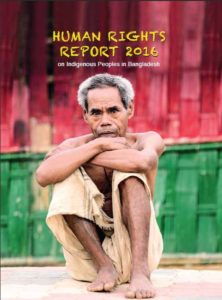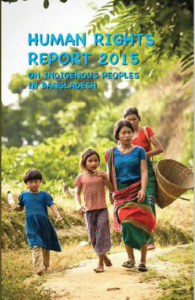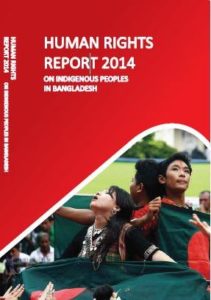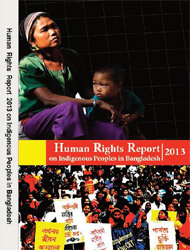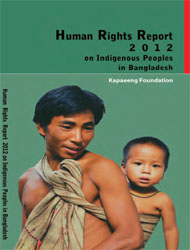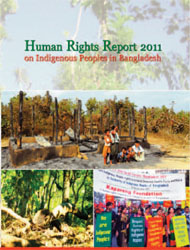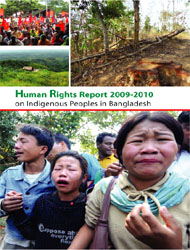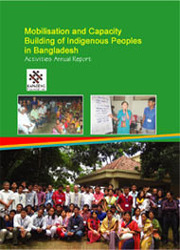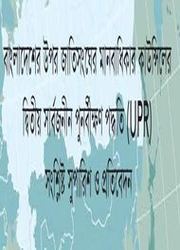SEZ threatens 16,000 tea garden indigenous workers’ livelihood in Habiganj

KF Report: The government has decided to develop five Special Economic Zones (SEZ) across the country under its Economic Zones Development Project to attract both foreign and domestic investments. One of the SEZs, that has been proposed to be established in Chandpur area of Chunarughat upazila in Habiganj district, has threatened the livelihood of nearly 16,000 tea garden workers belonging to different indigenous and marginalised peoples who are dependent on that land.
The Bangladesh Economic Zones Authority (BEZA) has decided to build an economic zone on around 512 acres of land in Chunarughat, which was earlier leased out to Chandpur Tea Estate operated by a British company named Duncan Brothers. Recently the lease has been cancelled for the establishment of the economic zone.
Following that thousands of tea workers have been facing fear of eviction from the land. It is learn that 951 acres of land out of 3951 acres are agricultural land which was used for cultivation of rice by tea workers for the last 150 years. This tract of land has been made cultivable by clearing jungles by the ancestors of the tea garden workers which now belongs to BEZA. If the government finally acquires the land of the 1,6000 tea garden workers belonging to different indigenous and dalit peoples of Chandpur Tea Garden, Begum Khan Tea Garden, Jual Bhanga Tea Garden and Ram Ganga Tea Garden, their livelihood will be seriously threatened given they have been traditionally dependent on cultivation of rice on this land.
Most tea workers are very poor and their daily income is as low as BDT 69, which is one of the least wage-rate in the country. Due to poor wages most of the time they are unable to meet their need for food, let alone meeting other needs. So they need to cultivate the land for growing rice. But now the government is considering acquiring the land without commensurate compensation for the workers because they do not have legal title over the land.
Tea workers have been protesting against the decision claiming that their livelihood would be at stake once SEZ is built. They also are saying that they will not get any compensation. Government as reportedly made commitments to give jobs, houses and five decimal lands to cultivate food, and build skill development centre to develop their skills. But the tea workers could not trust the government anymore as one of the previous governments had also made same commitment when they built mobile operator tower in the area, which remained unimplemented.
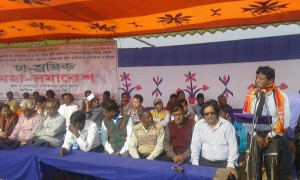
Rabindranath Soren, President of Jatiya Adivasi Parishad and Chairperson of Kapaeeng Foundation expressed his solidarity with the agitated tea garden workers
It was reported that, political parties, right activists and tea garden workers have been protesting since early December 2015. On 28 December 2015 tea workers submitted a memorandum to the Prime Minister of Government of Bangladesh and staged a human chain to cancel the establishment of Economic Zone. On 9 January 2016 they organized a mass rally to press their home demand. In this rally, the tea workers threatened to go for an indefinite strike at all tea gardens in Sylhet region if their demand for cancelation of economic zone was not met by January 2015. Different organizations and eminent personalities including Fazle Hossain Badsha MP, Pankaj Bhattacharya, Hossain Zillur Rahman, Hameeda Hossain, Khushi Kabir, Prof. Anu Mohammad, Syed Abu Jafar Ahmed, Rabindranath Soren, Professor Mesbah Kamal and Lucky Akter expressed their solidarity with the protesters.
Despite widespread protest and criticism from different quarters, BEZA is still determined to establish an economic zone. BEZA chairman Paban Chowdhury rejected outright the fear of tea workers at the cost of claimed economic ‘opportunities’ from SEZ. He also said that the establishment of economic zone would ensure empowerment and opportunities for tea workers to come out of their life of deprivation, which they have been going through. Paban Chowdhury also wondered why people are always against the ‘development activities’. Paban claimed that the authorities had a series of meeting with tea workers, in addition to the meetings with trade representative of British High Commission, Duncan Brothers, and local lawmakers on the proposed economic zone.
However, the tea garden workers are claiming that no one went to discuss with them about the proposed SEZ. Without the consent and consultation of tea workers, the BEZA had finalized the plan. The international human rights laws and standards, including the UN Declaration on the Rights of Indigenous Peoples (UNDRIP), require the States and other non-state actors to seek free, prior and informed consent prior to initiation of any development activities in indigenous territories. However, the process of initiation of SEZs in the land of tea garden workers is an outright denial of this right.
Although it is learnt that the government is in the final phase of acquiring the arable land at several tea estates, the tea workers hope that announcement of cancellation of SEZ in Habiganj will come up if Honorable Prime Minister intervenes in the matter.
Published on January 20, 2016



